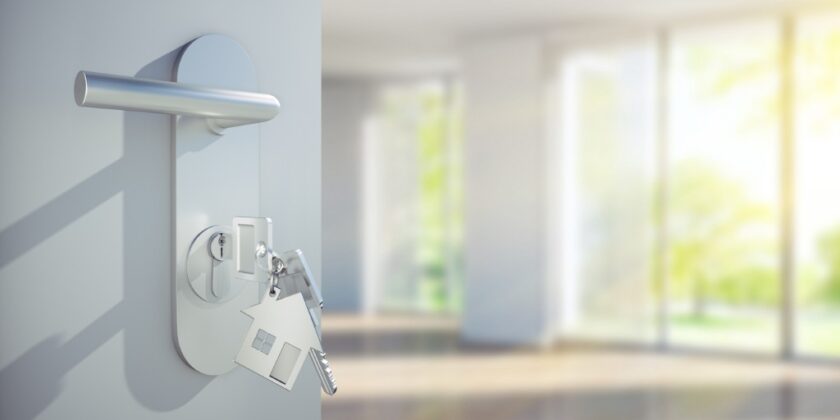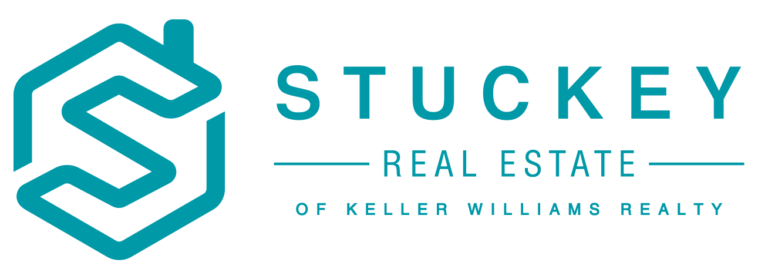Best Investing: How to start building your real estate investment portfolio
My First Multi-Unit
Four years ago in 2017, I had just graduated from college and spent two months volunteering in the forests of Madagascar; living in a tiny hut. I moved back to Portland Maine to live with my college roommate and start my first full-time job as a structural engineer. I had next to no money and no idea what I wanted to do next.
One year later I was living with my college boyfriend (now husband) for the first time and we were both frustrated with how much rent we were paying to live in a one-bedroom apartment with sub-par management. We weren’t quite ready to buy a house and move out of the city, but we wanted to do something different. So in the summer of 2018, I worked with a Realtor and purchased my first multi-unit which was a large triplex. I bought it with a Federal Housing Administration (FHA) loan (a lot of people also refer to it as a first time home buyer loan but anyone can use an FHA loan) which only required 3.5% down instead of the 20-25% that many people expect to pay. We moved into the second-floor apartment and started our crash course in property ownership and being landlords. This purchase catapulted me into the world of investing and three years later, I own 25 apartment unit in Southern Maine, with a total value of almost 3 million dollars. I now work as a full-time Realtor and property investor and am passionate about educating people about the wealth and financial freedom power of this industry.
Is Real Estate Investing Right for You?
The very first thing you should think about if you’re considering real estate investing is, if it is the right fit for you and your lifestyle. While I believe everyone has the ability to start building their investment portfolio, that doesn’t mean that everyone should. Before you decide to buy your first property, you should do some research and soul searching because property investing can take up a lot of time and isn’t for the faint of heart. Purchasing your first rental property is a big step for any investor. It’s one of the largest assets you can buy, but with a little bit of time and effort, it can be a great way to generate passive income. Below are some of the things you should consider before you make the leap:
- Do you consider yourself a “handy” person? Knowing how to fix a leaky sink or replace a door are not requirements to own a multi-unit, but this sort of knowledge will certainly help you out in the beginning and reduce your costs if you have minor repairs that need fixing. If you’ve never swung a hammer don’t despair! I learned most of my fix-it skills on Youtube. The most important thing is knowing where to find information and if you can’t do the job, find someone who can.
- How do you handle confrontation? If you rent enough apartments, eventually you will come across a less than ideal tenant or situation that requires a tough conversation. Maybe a tenant lost their job and can’t make rent, or their dog chewed through a wall. You may have an angry tenant because their appliance broke and you can’t get a repair person in to fix it for 2 weeks or the neighbor is mad that your roofer parked in their driveway. When problems arise, you will be responsible to fix them and you need to be prepared to have difficult conversations while staying professional when emotions are high.
- Are you ready to live with your tenants? Again this isn’t a requirement but to minimize your cash investment into your first property, you will need to live in it which means you will share the building with your tenants.
- Can you afford large capital investments? At some point, you will need to inject money into the building to make large repairs or improvements such as replacing the heating system or roof. If you do your research and buy at the right price, these large expenditures can be planned for, but it is important to have an emergency fund in place just in case.
- Would you sacrifice your weekends now, to build your future wealth? Whether it is showing a vacant apartment, doing a walkthrough with your plumber, or renovating a kitchen, owning an investment property will require time commitments and sacrifices. The amount of time you commit to your investment property is up to you, but it will cut into your free time so make sure you are ready to make compromises.
Buying a rental property isn’t for everyone. There’s usually more risk involved with owning a rental property than investing in the stock market. But with higher risk, comes higher reward when executed properly. You have more influence over your investment property than you would the stock market. For example, even if you bought every bottle of Diet Coke in your local grocery store, you probably wouldn’t be able to affect Coca-Cola’s stock price. There are so many factors at play. When it comes to the stock market, you’re riding a wave that’s already in place.
With an investment property, though, small changes, such as a new door or some minor improvements to the kitchen, can improve the likelihood of attracting good tenants at higher monthly rents. With investment properties, not only are you riding the wave, but you own the wave. It’s a great choice for that investor who wants a more hands-on opportunity.
Hire a Trusted Realtor
So you’ve decided to jump in with both feet, congratulations! The first step is to hire a trusted Realtor to guide you through the process. Bonus points if you find a Realtor who is well versed in real estate investing, or better yet, practices what they preach and is building their investment portfolio. Ask around with your friends and family to see if they have any recommendations for a Realtor that they had a great experience with and then interview that person yourself to see if they are a good fit for your goals. Having the right Realtor by your side is paramount to your success in finding your first investment property. My financial advisor recommended the Realtor I worked with to buy my first multi-unit and it was a fantastic experience. I had such a positive experience that I decided to get my real estate license three months after closing on my first multi-unit!
Get Pre Approved for a Mortgage
The second step is to get pre-approved for a mortgage. You can work with any bank or mortgage broker you choose. If you aren’t sure, your Realtor will be able to make some recommendations and help you find the right fit. Your mortgage broker will check your credit, collect your recent tax returns, pay stubs, and W-2s, etc. to get the full picture of your creditworthiness. They will then have a conversation with you about your buying goals so they can issue you a pre-approval. There are a multitude of different loan options available but if you are trying to minimize your down payment, I recommend you look into a 3.5% FHA loan which can be used for 1-4 unit properties. This type of loan requires that you live in the investment property but it has lower credit score requirements and will help to minimize your cash investment into your first property. Once you are pre-approved you are ready to start multi shopping!
Picking the Right Multi-Unit
So far, the buying process has been pretty much identical to what you would expect if you were buying your first single-family home. Here is where your tactics will start to divert. When you are buying your first home, emotion will be the main driver for picking the perfect house for your situation. When buying an investment property, emotion needs to be almost completely removed from the equation. I say almost because I hold a small space for my gut feelings about a property but overall, you will be analyzing the property based on its investment value which is based on a few different factors such as appreciation rate, cash flow, and required capital improvements or overall condition of the building.
The 1% Rule
There are a lot of numbers to consider when analyzing a property to determine if it is a worthwhile long-term rental investment. The very first thing I consider is does this property pass the 1% rule?
The 1% Rule
Monthly Gross Rents ≥ 1% of total purchase price
For example, I purchased my first triplex for $495,000. Before I made any upgrades, the market rent for the three units was $2000, $1800, & $1600, or a gross monthly rent of $5400. The gross monthly rent was greater than 1% of the purchase price of $495,000 ($4950) therefore this property passed the 1% rule and may be a good investment. Before I could know for sure, I would need to continue with my analysis.
The 50% Rule
Now to dive deeper into the cash flow analysis of the building. Cash flow is the amount of profit you bring in each month after collecting all income, paying all operating expenses, and setting aside cash reserves for future repairs. For buy-and-hold real estate investors, cash flow is the primary lever used to increase passive income. When you own a property that you rent out, you get an income in the form of rent payments. You also have expenses such as a mortgage payment, utility payments (if not paid by tenants), property insurance, taxes, repairs & maintenance, and funding your cash reserve so you can make big repairs or improvements such as re-shingling the roof or renovating a kitchen. When purchased at the right price, and managed properly, your property will be cash flow positive and you generate passive income each month.
Every property is different, but a helpful rule of thumb is the 50% rule. This will help you get a general idea of how much your expenses will be.
The 50% Rule
Operating Expenses = 50% of Gross Rent
Your net operating income (NOI) is the difference between your gross rental income and the expenses of the property. On average, 50% of the gross rental income will go to expenses, and 50% will be leftover as the NOI. The 50% rule does not include the mortgage payment for the property. Now that you have an estimate of the expenses for the property, you can estimate the monthly mortgage payment with your mortgage broker’s help or simply plug the purchase price into an online mortgage calculator.
Let’s look at my first triplex purchase using the 50% rule.
- Purchase price: $495,000
- Monthly mortgage payments (3.5% down FHA loan): $2420
- Gross Monthly Rental Income: $5400
- Estimated Operating Expenses = 50% of Gross Rent = $2700
Cash Flow
Your monthly cash flow is the money left over after you pay your operating expenses and mortgage payments.
Cash Flow
Cashflow = Gross Rental Income – Expenses – Mortgage Payments
Following my first triplex example from above my monthly cash flow can be estimated as the following:
- Gross Monthly Income: $5400
- Mortgage Payment: $2420
- Monthly Operating Expenses: $2700
- Monthly Cash Flow: $280
You can increase your monthly cash flow one of two ways. You can increase your income (in this case rent), or you can decrease your expenses. There are many ways to do both. If you increase the quality of your rental by renovating it, the unit will be more desirable and therefore can bring in more rent. Similarly, if you can find ways to decrease your expenses (get new quotes on insurance, install a coin-op washing machine to help offset water costs, install durable flooring to minimize repairs, screen your tenants well to prevent future evictions or damage, cut unneeded services, etc) you will also increase your cash flow. There is no hard and fast rule to determine how much cash flow is satisfactory for a property but generally speaking, you want it to be positive so your property isn’t costing you money on a monthly basis.
When I first purchased this triplex it barely produced any cash flow but I saw the potential to increase rental income and decrease expenses. Since I purchased the triplex, I renovated the 2nd & 3rd units, added in-unit washers/dryers to each unit, replaced the roof, upgraded the electrical systems, and refinanced my mortgage to a conventional loan to reduce my interest rate & drop the private mortgage insurance fees I was paying. These improvements ensured that the apartments would command higher rents and decrease my future expenses. Today my triplex makes over $1000 per month in passive income.
Building Condition
Building condition is a bit subjective and different investors prefer to focus on different building conditions. For instance, a retiree investor may prefer to buy turnkey properties that require minimal maintenance and improvements while another investor prefers a property that is in worse condition that they can add their own sweat equity to. Typically buildings that are in better condition will cost more upfront, but have lower maintenance costs. On the flip side, a property that is older or in overall worse condition will likely not be as costly upfront, but the monthly expenses will be higher. Think about your needs and investment strategy and decide what type of property you want to focus on.
Getting Started Is the Most Important Part
While there are many variables to consider when purchasing your first investment property, you should start by doing your research and finding a trusted Realtor. It may feel overwhelming at first, but take things one step at a time. The rules of thumb I shared above will help you to get started analyzing investment properties but my biggest piece of advice is that you have to start somewhere! My first purchase wasn’t an out-of-this-world deal at the time, but it got me started on my journey and I learned the basics in the process. After consistent planning & diligently improving the property, it is now one of my strongest rental properties!




